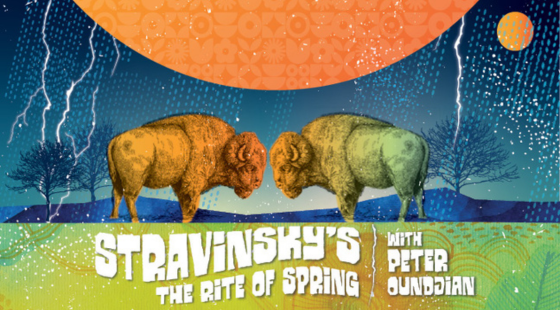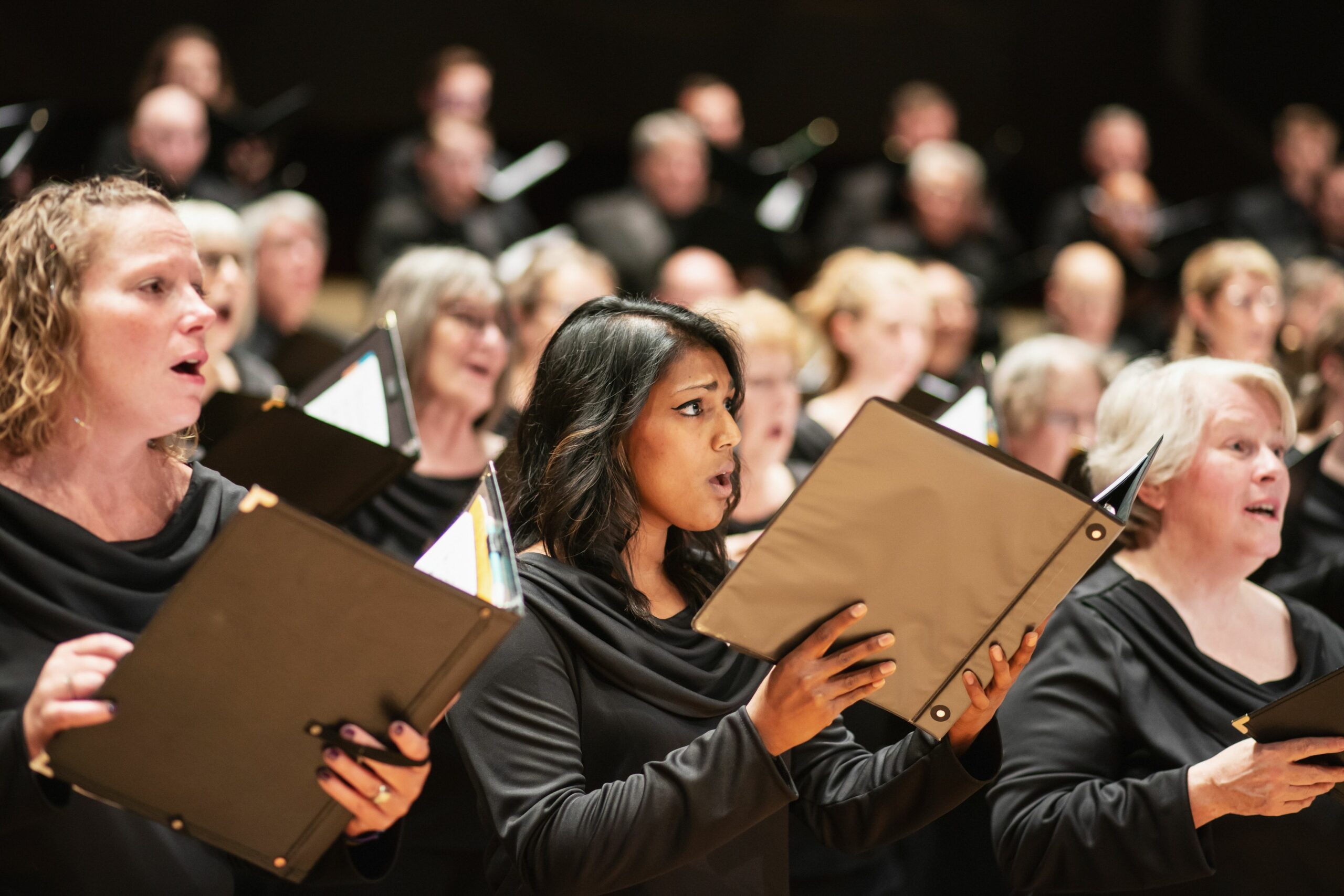The word ‘Renaissance’ comes from the French language, meaning ‘rebirth’ and it is closely tied today with the concept of cultural revival. This association suggests, of course, that death must have taken place prior to it, allowing for a form of awakening to emerge.
Hill, who is currently in his forty-third year as Principal Timpanist and Composer with the Colorado Symphony, has been a prolific composer over the last decade, with many of his works premiering in Denver. Hill’s Three Wings for Orchestra with Soprano (featuring Nadya Hill) opened the 2018 Colorado Symphony Season while The Raven for orchestra, chorus and electronic chorus was premiered by the Colorado Symphony in 2015 and nominated for the Pulitzer and Grawemeyer Awards. Hill’s Symphony #3 was also nominated for the Pulitzer. Passages for Orchestra, Electronics and Soprano, with electronics by Colin Hill was recorded with Hill conducting the Colorado Symphony, and Nadya Hill soprano, in 2022, and will become a video for display at Denver International Airport. His Three Tangos and From Silence and Isolation were premiered by the Evergreen Chamber Orchestra in 2021 and 2022.
Hill shared insight into the composition of Renaissance leading up to its premiere May 26-28, 2023 with the Colorado Symphony and Chorus.
“In my own thoughts, I find a close relationship between the seemingly different ideas of sadness and beauty. The Lacrimosa (weeping/tears) attempts to utilize this combination of emotions with lyrical writing for the chorus and orchestra as the words evoke sadness for the abuses of the earth, and the lack of empathy for people who are oppressed and in unfortunate circumstances. Shakespeare’s words about the gift of mercy close this section with a hint of hope, followed by a gentle Allelujah.”
“The following sections of Renaissance explore some of my favorite beautifully descriptive words of Hildegarde. Her melodic writing is truly timeless and lends itself to a variety of harmonic and rhythmic structures covering musical styles from her era to the present. Hildegarde’s philosophy of appreciation for nature, the interconnectivity of all people with each other and the earth, and the divine wisdom of immortal souls speaks to me in ways I can only describe in music.”
“A short reiteration of the Dies irae and Lacrimosa remind us that we can turn away from the violence, rampant greed, exploitation of people and resources, and all that prevents a harmonious existence. This Dies irae is three measures of 6/4 meter followed by three bars of 6/8: 666, and 666. The book of Revelations associates this number with the Beast or the Devil. Are these evils an inherent part of us, an existential threat, or can they be overcome by empathy, kindness and love? I leave it to listeners to interpret this as they please. The title Renaissance, the ideals of Hildegarde, and the remaining sections of this music provide my hopeful answer.”
“Quietly dissonant and eerily beautiful ostinatos usher in words that present the dichotomy of winter’s low sun beams, stark silhouettes and icy cold, with its inherent beauty and calm. This mystic time of year, with nature’s pace slowed, evokes a wonderful sense of peace and rest, as well as the promise of the spring to come. What could follow this but a light and lively little Renaissance song about the renewal of the earth and her inhabitants as winter bursts into spring.”
“Words from Native American philosophy are followed by a thought provoking statement from an Australian First People’s proverb. The penultimate words are my own and express my hope that through introspection, compassion, altruism, and love we can all strive for a better more peaceful world.”
“The final words are sung unaccompanied, Dona nobis pacem — Grant Us Peace.”
Experience the World Premiere
Don’t miss the world premiere of Renaissance during the Colorado Symphony’s final concerts of the 2022/23 Season at Boettcher Concert Hall from May 26-28, 2023. Hear it alongside Stravinsky’s groundbreaking Rite of Spring and Brahms’ Violin Concerto with Augustin Hadelich.
Join us as we celebrate this extraordinary season.



